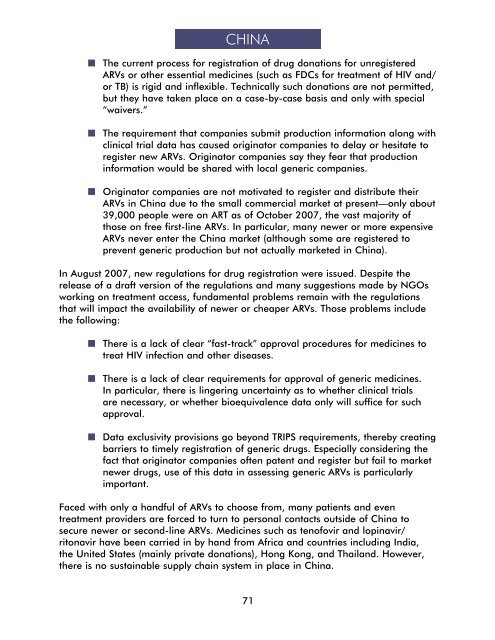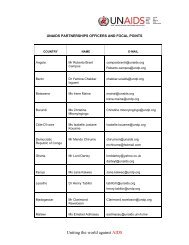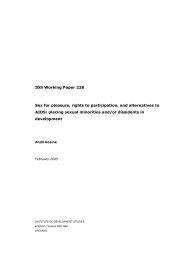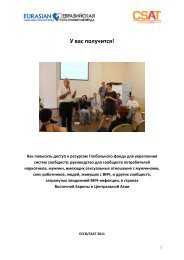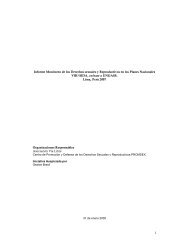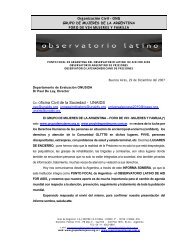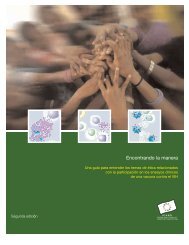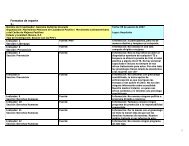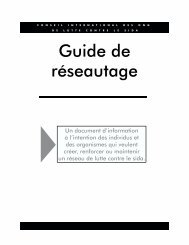Missing the Target #5: Improving AIDS Drug Access ... - CD8 T cells
Missing the Target #5: Improving AIDS Drug Access ... - CD8 T cells
Missing the Target #5: Improving AIDS Drug Access ... - CD8 T cells
You also want an ePaper? Increase the reach of your titles
YUMPU automatically turns print PDFs into web optimized ePapers that Google loves.
CHINAThe current process for registration of drug donations for unregisteredARVs or o<strong>the</strong>r essential medicines (such as FDCs for treatment of HIV and/or TB) is rigid and inflexible. Technically such donations are not permitted,but <strong>the</strong>y have taken place on a case-by-case basis and only with special“waivers.”The requirement that companies submit production information along withclinical trial data has caused originator companies to delay or hesitate toregister new ARVs. Originator companies say <strong>the</strong>y fear that productioninformation would be shared with local generic companies.Originator companies are not motivated to register and distribute <strong>the</strong>irARVs in China due to <strong>the</strong> small commercial market at present—only about39,000 people were on ART as of October 2007, <strong>the</strong> vast majority ofthose on free first-line ARVs. In particular, many newer or more expensiveARVs never enter <strong>the</strong> China market (although some are registered toprevent generic production but not actually marketed in China).In August 2007, new regulations for drug registration were issued. Despite <strong>the</strong>release of a draft version of <strong>the</strong> regulations and many suggestions made by NGOsworking on treatment access, fundamental problems remain with <strong>the</strong> regulationsthat will impact <strong>the</strong> availability of newer or cheaper ARVs. Those problems include<strong>the</strong> following:There is a lack of clear “fast-track” approval procedures for medicines totreat HIV infection and o<strong>the</strong>r diseases.There is a lack of clear requirements for approval of generic medicines.In particular, <strong>the</strong>re is lingering uncertainty as to whe<strong>the</strong>r clinical trialsare necessary, or whe<strong>the</strong>r bioequivalence data only will suffice for suchapproval.Data exclusivity provisions go beyond TRIPS requirements, <strong>the</strong>reby creatingbarriers to timely registration of generic drugs. Especially considering <strong>the</strong>fact that originator companies often patent and register but fail to marketnewer drugs, use of this data in assessing generic ARVs is particularlyimportant.Faced with only a handful of ARVs to choose from, many patients and eventreatment providers are forced to turn to personal contacts outside of China tosecure newer or second-line ARVs. Medicines such as tenofovir and lopinavir/ritonavir have been carried in by hand from Africa and countries including India,<strong>the</strong> United States (mainly private donations), Hong Kong, and Thailand. However,<strong>the</strong>re is no sustainable supply chain system in place in China.71


